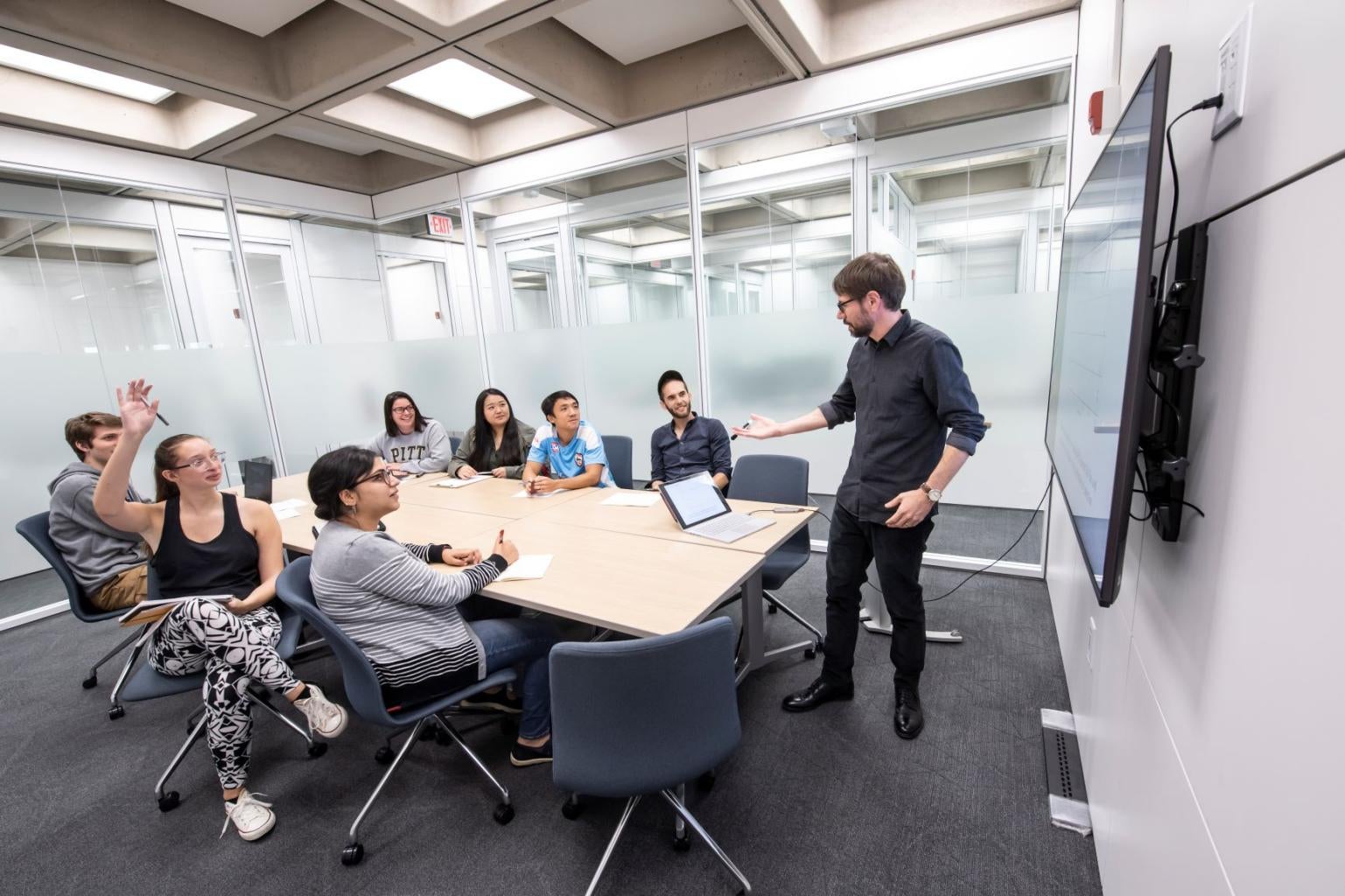Welcome to Pitt’s Economics PhD Web page! Our mission is to prepare students to be professional economists in academia, business, or government. The PhD program has three goals: to advance economic knowledge through an intensive and balanced research program, to develop the skills needed to conduct independent research on current economic problems, and to provide training needed for effective teaching of economics.

The success of our PhD program is reflected in our career outcomes record. Historically, approximately 56 percent of our graduates find jobs in the tenure-stream academic market, 31 percent at research institutions, post-docs, and non-tenure stream positions, and the remaining 13 percent in industry or government. Our career outcomes since 2000 include highly ranked universities such as the University of Minnesota, Carnegie Mellon University, Royal Holloway College (London), the University of Virginia, and the University of Toronto, as well as liberal art colleges such as Oberlin, Kenyon, the College of William and Mary, Washington and Jefferson College, and Colgate University.
Our program is designed to exploit the strength of our faculty’s research, which generally encompasses more than one field within economics. In addition to rigorous first-year core courses in microeconomic theory, macroeconomics, econometrics and math, our students specialize in two different major fields. Fields include microeconomics, econometrics, experimental, labor/development, macroeconomics, and applied microeconomics.
We involve students in our research community from the beginning of their second year in our program. We hold lunchtime brown bag seminars in which students and faculty present research in progress and receive early feedback. These brown bags foster collegiality among faculty and students and result in productive research collaborations. In addition to the brown bags, students are exposed to frontier research conducted by external speakers via our seminar series in each of the six fields. Most of our seminar series are run jointly with Carnegie Mellon University, extending our research community beyond the walls of our building.
We take pride in our traditional strength in experimental economics and the opportunities our students have to use the Pittsburgh Experimental Economics Lab (PEEL) to run their experiments.
We also train our students to be effective teachers. We offer an in-house course, Teaching Economics, to all students during the fall of the second year. Students gain experience through recitations as teaching assistants or by serving as primary instructors for a course during the summer.
Our student body counts about 70 members, and is very diverse. International students come from a variety of countries, including Bangladesh, Benin, Brazil, China, Chile, Colombia, Egypt, India, Indonesia, Israel, Nepal, Russia, Singapore, South Korea, and Ukraine. They are also lucky to be in Pittsburgh, which, for the second time since 2009 has been ranked by The Economist as the “most livable city in the continental United States” based on stability, health care, culture and environment, education, and infrastructure!
We offer financial assistance to most admitted students through tuition remission and fellowships that include a stipend of approximately $23,000 and health insurance. Fellowships for first-year students do not require teaching or research assistant duties. Starting in the second year, funded students perform teaching or research assistantship duties that may not exceed 20 hours per week. Students may apply to other University fellowships that free them from any duties during a given academic year. Summer funding is available through research and teaching appointments.
Applications to our program and all supporting documentation must be submitted online by January 15. Please follow this link for detailed instructions on how to apply.
Thank you for your interest in our program. I look forward to reviewing your application.
Alistair Wilson
Director of Graduate Studies
If after reading the information on these pages your question still remains unanswered, please e-mail our Graduate Program Administrator.
